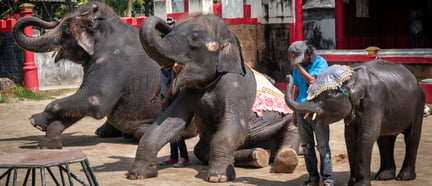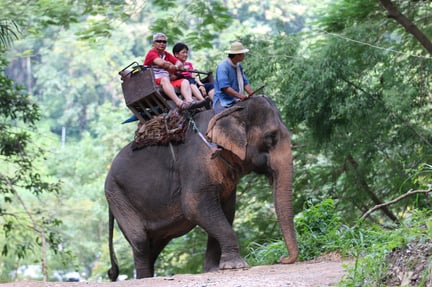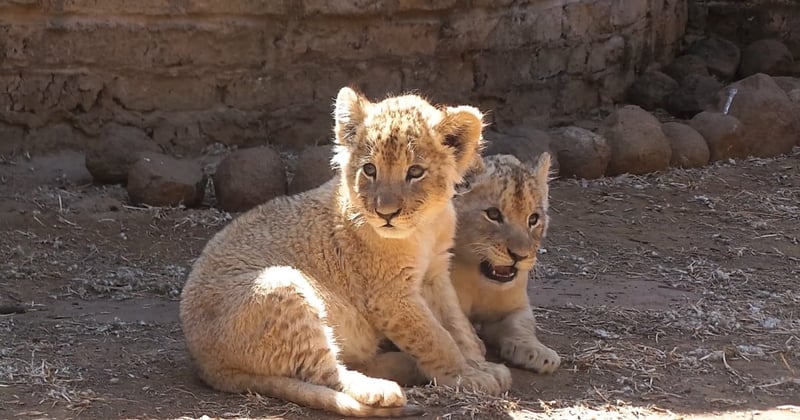
The new trends to walk with lions and to pet lion cubs cause them a lifetime of suffering. And by participating, tourists are inadvertently helping to fund their ongoing torture.
Lions are incredible animals, majestic, regal and deadly - so it is easy to understand how unsuspecting tourists are drawn to them, dreaming of an Instagrammable moment next to one of nature's fiercest predators.
As the saying goes, "we hurt the ones we love the most," and our fascination with wildlife is fueling an industry that exploits them.
There are, of course, many ways to see lions in their natural environment. In the wild you can see their true behaviours and witness what really makes lions the awe-inspiring kings of the jungle.
A lion's natural life: stolen for entertainment
Tigers walking with tourists is an activity where tourists can walk alongside tigers. This practice is part of the larger trend of wildlife tourism, which can involve interactions like feeding, petting, bathing, and taking photos with animals.
Lions that 'walk' with tourists are denied their natural lives. From an early age, they are normally hand-reared to develop the necessary strong bond with humans. Attractions often involve cubs as young as just two weeks old. Naturally, this separation process is incredibly distressing for the cubs, who become fearful and anxious, while the mothers are left distraught by the removal of their young.
The facilities that offer these experience may market themselves as conservation centres but tigers that are born and raised in captivity live their entire life behind bars in conditions that do not meet the needs of these animals.
True conservation efforts focus on protecting animals in the wild and their natural habitats.
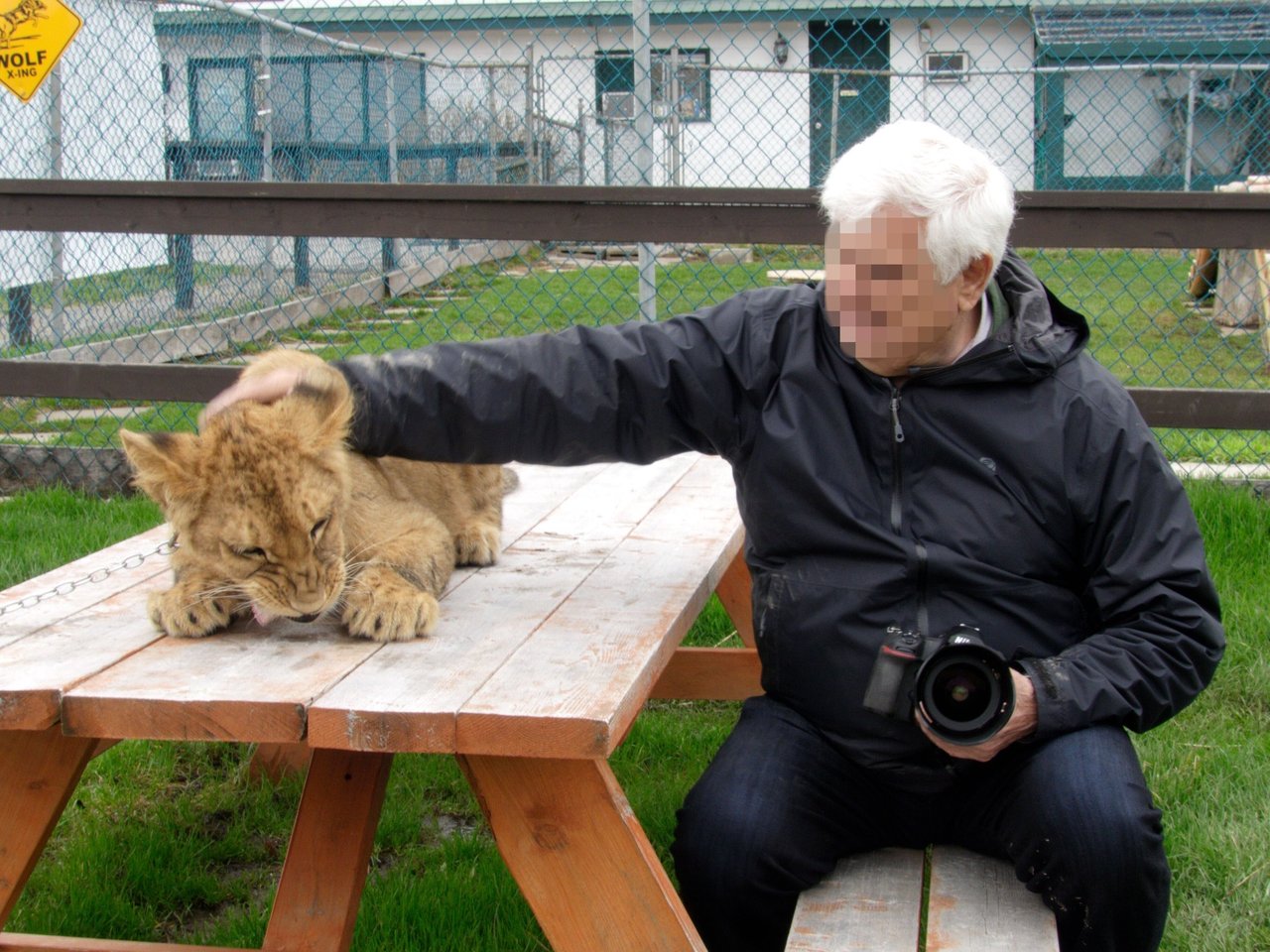
The impact on lion welfare: physical and psychological harm
Lions should never be tamed or domesticated. Their needs are fundamentally incompatible with human lifestyles. And why should they be forced to share their lives with us when they have evolved over thousands of years to thrive in their natural habitats?
A compelling study found that lions are entirely unsuitable for life in captivity. In the wild, lions possess one of the largest home ranges of all large carnivores, traversing vast territories daily. This extensive roaming is crucial to their physical and mental well-being.
When confined, lions often exhibit stress behaviours such as pacing more frequently than other animals. To keep them docile and safe for tourists, they may be subjected to cruel practices like drugging, restraining, or often declawing and defanging.
Declawing is still legal in many parts of the world, including the USA and Thailand
Declawing isn’t just a manicure; it involves amputating the top end (the last phalanx) of each of the tiger’s toes—it's a painful process with long-lasting repercussions. For tigers, who walk with most of their weight on their toes, this is particularly debilitating.
Defanging, another brutal practice, involves removing a tiger's canine teeth
This can be done in one of two horrific ways: either grinding down the teeth, leaving exposed nerves and creating pockets ripe for rot, or by pulling out the canines entirely. The result? Teeth that decay rapidly and cause continuous pain and suffering.
Lions can't be tamed
Even with precautions, tigers are wild animals with natural instincts, and there have been instances where such interactions have led to injuries or fatalities.
@worldanimalprotection World Animal Protection, PETA Deutschland and Welttierschutzgesellschaft representatives were on the ground to make a stand and send a message to @getyourguide - it's time to stop profiting from captive wildlife suffering 🛑 Help us make change – go to their account and tell them to stop selling animal cruelty. #wildlife #animals #protest ♬ original sound - World Animal Protection 🌎
Taking action to end lion exploitation
Stand by lions—not by walking with them, but by protecting their right to live wild and free.
- Support ethical tourism: Avoid attractions that offer hands-on interactions, such as cub feeding, walking with lions, or photo opportunities with captive animals.
- Call out and boycott travel giants like GetYourGuide: who are profiting from these cruel attractions.
- Advocate for Legislation: Push for laws that ban inhumane practices.
- Educate and Raise Awareness: Share information on social media, engage in conversations with uninformed tourists and educate others about the importance of ethical wildlife practices.
Let's honour a lions true nature and ensure that future generations can witness them roaming free, as the powerful and captivating kings of the jungle they were before profit got in the way.
Learn more
-
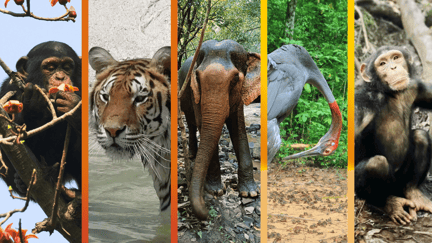
Announcing the 2024 Wild Animal Unique Personality Award Finalists
Press release
In honour of World Animal Day, World Animal Protection is thrilled to announce the 2024 Wild Animal Unique...
-
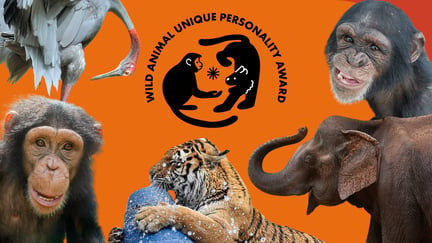
World Animal Day 2024: Vote for Your Favourite Wild...
News
Celebrate World Animal Day 2024 by Voting in the Wild Animal Unique Personality Award! Voting is open...
-

New Exposé Details How Travel Giant GetYourGuide Profits Off...
Press release
A shocking new report from global non-profit World Animal Protection reveals GetYourGuide’s ties to venues that abuse animals.

